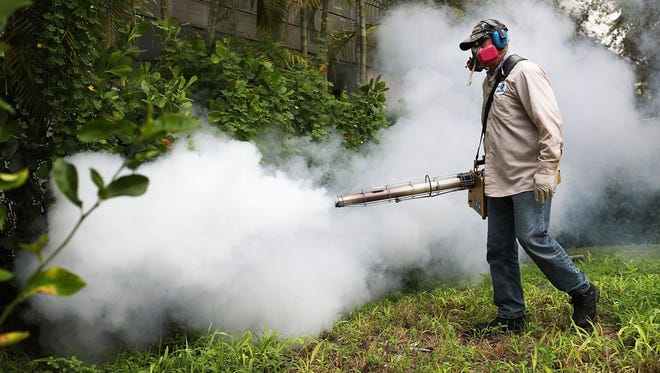New Zika transmission zone identified in Miami area

Florida health officials have identified a new neighborhood in Miami as a Zika transmission zone, Florida Gov. Rick Scott's office said Thursday.
The one-mile square area is bounded by NW 79th St. to the North, NW 63rd St. to the South, NW 10th Ave. to the West and N. Miami Ave. to the East.
The new zone is the second in Miami-Dade County where mosquitoes currently are spreading Zika. The other is a 4.5-square-mile area of Miami Beach covering most of South Beach and Middle Beach, between Eighth Street and 63rd Street from the ocean to the bay.
In a statement on his official website, Scott said health officials had identified five people — two women and three men — as carriers of the virus. Three of them live in the area and the other two either work in or have visited it.
Health officials say Florida has had more than 1,000 cases, while Miami-Dade County continues to be the only area with ongoing active transmission of the virus.
There is no vaccine for the Zika virus, which produces mild symptoms but can cause birth defects if pregnant women are infected.
The governor said the latest discovery "underscores the urgent need for federal funding to combat the Zika virus."
Scott noted that it had been two weeks since federal funding to fight Zika was approved by Congress and signed by President, however Florida had not yet received any of the money. "We don’t need bureaucratic timelines – we need funding now," Scott said.
Scott said he has asked the U.S. Centers for Disease Control to identify specific best practices for defeating Zika in this latest area, noting that each area is different.
Officials in the past have mounted eradication efforts through widespread spraying and by eliminating such mosquito breeding grounds as bird baths and other standing water.
Although the populations of the two species of mosquito that transmit the Zika virus (https://www.cdc.gov/zika) will thin out in the U.S. by mid-October in colder weather, according to tropical disease experts, they will likely return next year.